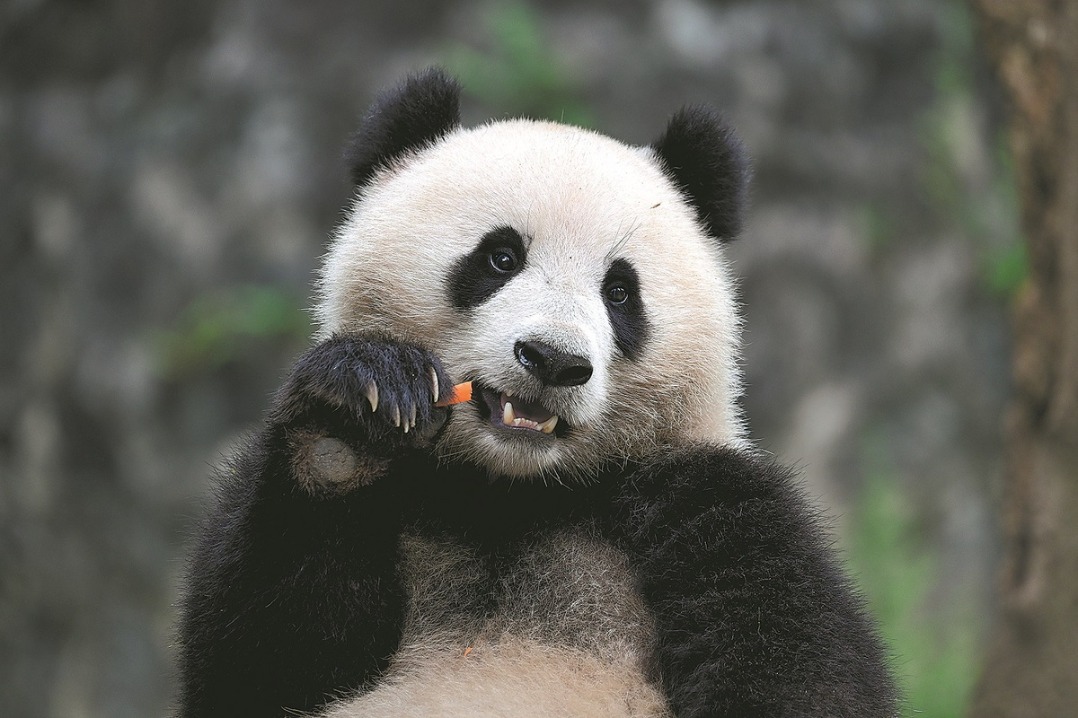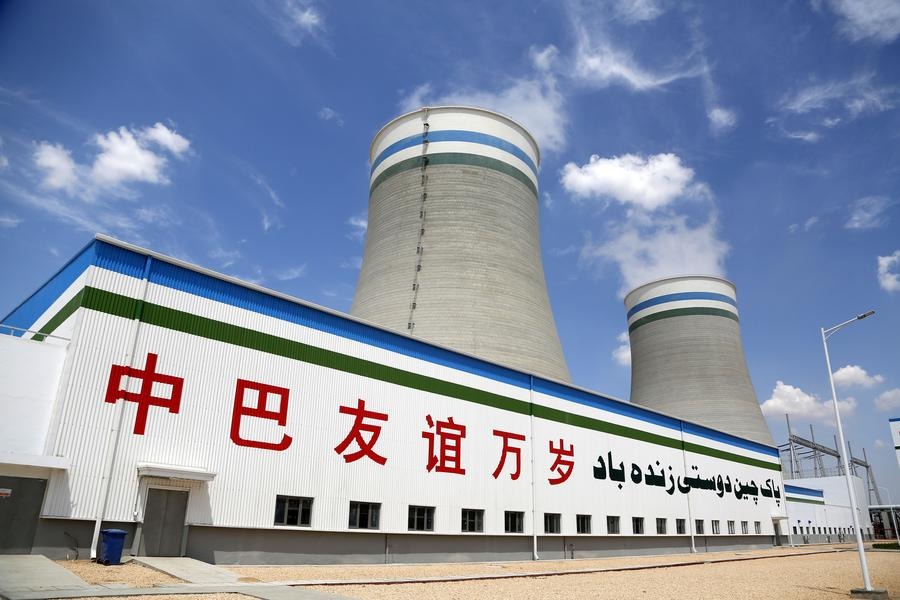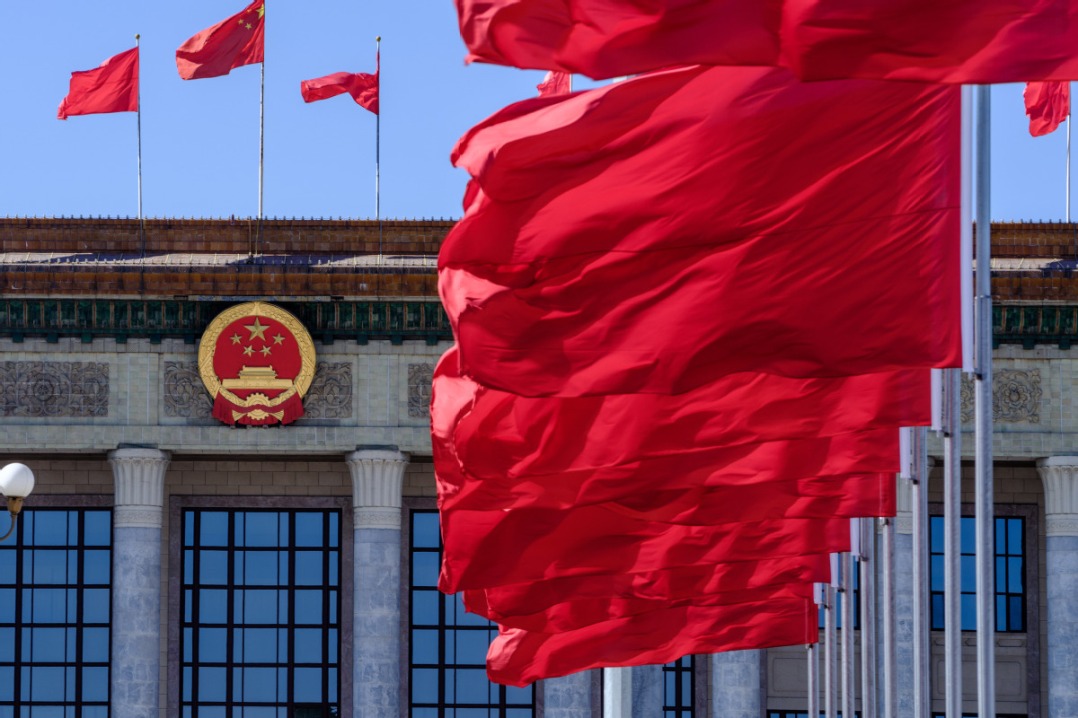Win-win China-Arab ties cooperate more


With the United States' strategic presence shrinking in the Middle East and Russia occupied with the Ukraine conflict, China has played an increasingly prominent role in the region. And since Arab countries now attach greater value to relations with China, the region is bound to become an increasingly important platform for China's diplomacy.
China is a stakeholder in the geopolitics of the Middle East, where most Arab countries are, because the region connects five important waterways, has been a battleground for military strategists throughout history and served as a bridge between China and Europe on the ancient Silk Road. Thanks to its extremely important geographical position, the Arabian region is bound to be a buffer between China and the United States and Europe.
The Arabic civilization in the Middle East, the Confucian civilization of China and the Western Christian civilization represented by Europe and the US are together called the great triangle of world civilizations.
These civilizations have blended, but also collided, with each other during exchanges, while developing together as well as restricting each other. In a process lasting more than 1,000 years, 10 ethnic groups in China converted to Islam, thus adding another diverse element to the Chinese nation and civilization. This shows that members of different civilizations can live together in peace and resolve their differences through dialogue.
As an important part of the developing world and the Non-Aligned Movement, Middle East countries have played (and are playing) a very important role in the development of China's diplomacy and multilateral relations. That New China could break the Western diplomatic boycott and blockade, return to the United Nations and become an important player in the international political arena was made possible partly due to the understanding and support of the Middle East countries.
In recent years, China and the Arab countries have reached many consensuses on issues such as human rights, democratization of international relations, and building a multipolar world order. When it comes to China's core interests, no matter how many differences the Middle East countries have, the four major players — Arab countries, Turkey, Israel and Iran — have always understood China's position and supported it, which makes the region China's core base on the international stage.
With limited resources, relatively insufficient workforce and unbalanced economic development, the region is economically complementary to China. China's initial overseas engineering projects and labor export since the launch of reform and opening-up all positioned the Arab region as the main market. Such exchanges helped increase China's foreign exchange earnings, made it more familiar with international rules and consolidated its diplomatic relations with other countries.
The China-Arab regional trade volume has increased by nearly 80 times — from less than $3 billion in 1990 to about $300 billion in 2021 — and China has become the largest trading partner of the region.
In particular, the Belt and Road Initiative has accelerated two-way economic, trade and investment activities. For example, China is helping Egypt's industrialization and Saudi Arabia's economic diversification, while improving the overall development level in the Middle East.
Also, China is the largest importer of oil and gas from the Middle East, which holds 70 percent and 50 percent of the global oil and natural gas reserves.
Since China became a net importer of oil in 1993, its energy imports have doubled every 10 years, of which 60 percent comes from the Middle East. In 2021, China's total oil imports reached 51,298 million metric tons, with the Middle East accounting for 51.25 percent of that, with the exception of Iran, which once accounted for a high percentage of China's energy imports but has been forced to drastically cut oil exports due to US sanctions.
China has suggested ways to resolve or reduce conflicts in the Middle East. It is the only major country that has no record of colonization, or staging invasion or proxy wars in the Middle East. It has always believed that it is the people who should decide the fate of their country, and countries should settle their disputes through peaceful talks.
At the beginning of the Gulf War in 1990, China worked as a mediator, trying to persuade Saddam Hussein's government to end its occupation of Kuwait and avoid war. In 2002, China appointed its first Middle East special envoy dedicated to mediating between the Palestinians and Israelis to help resolve their disputes. In 2003 before the Iraq War, it advocated peaceful resolution, but the US, the United Kingdom and other US allies still resorted to military means. And when the Libyan crisis broke out in 2011, China accepted the decision of the League of Arab States and didn't veto Security Council Resolution 1973, and asked the Libyan government and opposition to settle their disputes through talks.
But China, along with Russia, used its veto powers in the Security Council many a time when it came to the Syrian crisis, in order to thwart the West's attempts to subvert, even overthrow, the legitimate Syrian government. Most dispensations in the Middle East, including the Syrian government and the opposition, lauded China for its efforts. China has also played the mediator's role in the conflict between Sudan and South Sudan, something which other major powers have not done.
China is strongly against extremism, violence and terrorism, but it has participated in only justified anti-terrorism operations in the Middle East, reflecting its respect for multiculturalism and the values which other civilizations hold high. It also demonstrates China's belief in the principle that extremism and terrorism are not associated with a specific ethnic group or faith.
As a matter of fact, China advocates that global cooperation to fight terrorism be based on international law and respect for the sovereignty and dignity of all countries, a position which has been welcomed by Middle East countries.
In accordance with the Five Principles of Peaceful Coexistence, China is practicing major country diplomacy, playing a responsible international role, and highlighting the importance of Middle East countries' diplomacy in international relations.
Still, China's diplomacy in the Middle East is in its primary stage. It largely lags behind that of the US in comprehensive strength, and Russia in diplomatic and military capabilities. Also, its soft power and geographical position still cannot rival those of Europe, especially the UK and France. Therefore, China's cooperation with the Arab countries still has a lot of potential to tap.
The author is the dean of and a professor at the Institute for Studies on the Mediterranean Rim at Zhejiang International Studies University. The views don't necessarily reflect those of China Daily.
If you have a specific expertise, or would like to share your thought about our stories, then send us your writings at opinion@chinadaily.com.cn, and comment@chinadaily.com.cn.


































